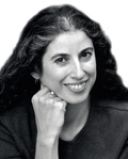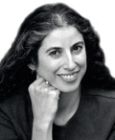Health
The Mammogram Debate: Whose Afraid of the Data?
The Mammogram Debate: Whose Afraid of the Data?
Posted December 26, 2009
The newest guidelines on mammograms have stirred up intense debate. But very little of it is about the numbers. It’s almost entirely about emotions. Whether it is individual women who speak poignantly about their own cancers or irresponsible politicians who talk about “rationing” to score cheap political points.
 As hard as it may seem to accept, neither of these should be the angle from which to consider the mammogram debate. This is not to minimize the life-or-death situation that individuals have faced with their own cancers. But the reality is that every medical intervention has benefits and harms. We have to be unafraid to look coldly at the data to see if the harms outweigh the benefits.
As hard as it may seem to accept, neither of these should be the angle from which to consider the mammogram debate. This is not to minimize the life-or-death situation that individuals have faced with their own cancers. But the reality is that every medical intervention has benefits and harms. We have to be unafraid to look coldly at the data to see if the harms outweigh the benefits.
Unfortunately, any time anyone tries to talk about the data regarding mammography, we are swamped with accusations that we are out to deny women a lifesaving procedure. This response makes it impossible to properly and responsibly evaluate the data.
I have both friends and patients who have faced breast cancer, and I would never want them to suffer more. But this emotional response is in a separate category from evaluating the data.
If an anti-inflammatory medication caused unacceptable harm (eg Vioxx), I’d want it pulled off the market. If an implantable defibrillator was found to be malfunctioning (eg Guidant defibrillators) I’d want it recalled. If a traditional medical treatment was found to cause more harm than good (eg estrogen replacement therapy), I’d want doctors to cease using it.
Cancer screening tests should be treated like any other medical intervention. We want smart, dispassionate scientists to evaluate the data. I can’t predict how the mammogram data will eventually settle, but we should not be afraid to look at the data and re-evaluate our preconceptions. That’s the definition of science.
We also, though, have to consider our emotional attachments to certain medical tests. In order to help our society interpret the scientific data, we need to understand the complex interplay of emotions and personal history.
But this should not cloud the scientific analysis of the data. To do so would be to put our health truly at risk.
Read Danielle’s article in the Los Angeles Times about mammograms and screening tests.
************
Danielle Ofri is a writer and practicing internist at New York City’s Bellevue Hospital. She is the editor-in-chief of the Bellevue Literary Review. Her newest book is Medicine in Translation: Journeys with my Patients.
You can follow Danielle on Twitter and Facebook, or visit her homepage.


